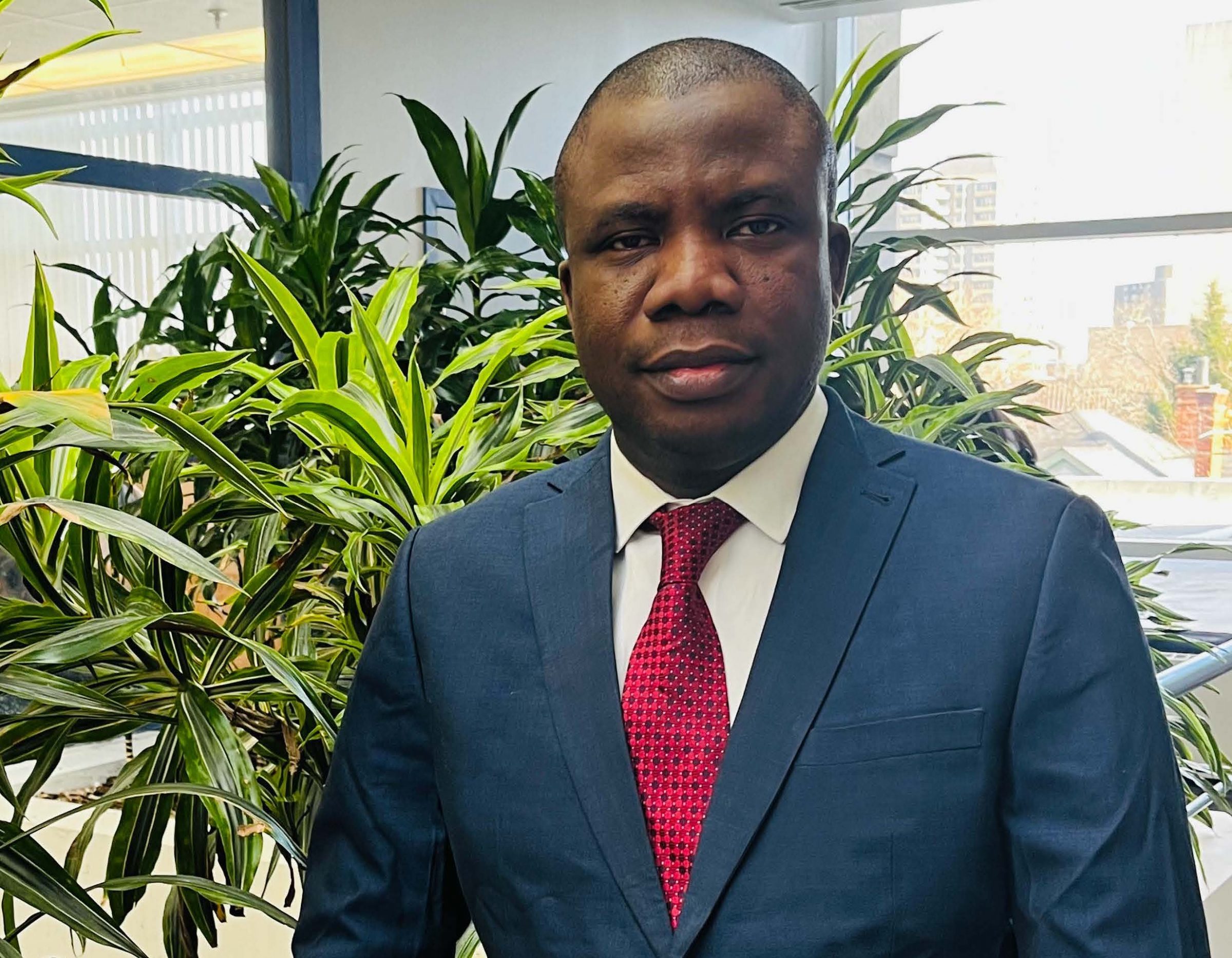
Dr. Opeyemi Bello.
Learning from teaching: Dr. Opeyemi Bello joins Faculty of Law
New instructor teaches commercial law, contracts, and labour-management relations
There’s a new instructor in Robson Hall’s classrooms this term. Law students and faculty at the University of Manitoba welcome Dr. Opeyemi Bello, who teaches Commercial Law, Contracts, and Labour-Management Relations. He also brings to the Faculty of Law, a research specialization on the intricate political dynamics of international tax cooperation and the challenges that developing countries encounter in negotiating international tax agreements.
Previously, Bello taught income taxation, international taxation, and contracts at the Schulich Law School at Dalhousie University where he earned his PhD in International Taxation Law and Policy. He holds an LLB (equivalent to a JD) from the University of Ilorin, Nigeria, and an LLM and MBA (Finance Specialization) from the University of Lagos, Nigeria. His PhD thesis examines and proposes solutions to the ongoing debates about negotiating a global digital framework.
Bello’s research continues to monitor and evaluate the evolving discussions on the digital tax framework and how they can affect the normative values of the international tax regime. Additionally, he is interested in researching how the international tax regime connects with other aspects of the international economic law regime. He has received academic awards, including the prestigious Purdy Crawford Fellowship from the Schulich Law School.
Dr. Opeyemi Bello was happy to share some insights with the Faculty of Law community about what inspires his research program and his love of teaching – and learning from his students while they learn from him!
Law School Journey
What first inspired you to study law?
During the early stages of my studies, I became aware of the legal system’s significant role in coordinating societal activities and fostering its growth. I observed numerous instances where people are restrained from certain actions, compelled to behave in specific ways, or allowed to express their wishes freely. When I inquired about what provides a guiding framework for people’s behaviour in the context of those instances, I learned that it is the law/legal system. I was inspired by how society adheres to the laws that it collectively creates to govern its affairs. Since then, I have decided to become part of the system that expands and develops the legal framework for the betterment of society.
How did you get interested in studying income tax law, commercial law, and labour-management relations?
My passion for business law courses has developed over the years. I grew up around lawyers who primarily practiced commercial law, which sparked my interest in law generally and, specifically, in business law courses, including those you mentioned. I am excited about the opportunity to learn these courses and now teach them at Robson Hall.
Research on Taxation and Peacemaking
Your research focus is on “the intricate political dynamics of international tax cooperation and the challenges that developing countries encounter in negotiating international tax agreements.” What are some of these dynamics and challenges?
The main issue of international tax cooperation is the effective inclusion of developing countries in designing and negotiating international tax instruments. There is a claim that these countries are not adequately represented in the negotiations that shape global tax standards and policies. Furthermore, even when included in negotiation forums, they often struggle to participate effectively. The ongoing discussions around global digital taxation illustrate how developing countries struggle to negotiate policies that favour them.
Can you see ways in which your PhD research into proposed solutions to these challenges have had a material impact on the international tax regime?
My PhD contribution highlights the relationship between international tax and peacemaking and how the peacemaking aspect of international tax cooperation has long been neglected by the parties involved in negotiating and designing the tax regimes. This neglect contributes to the ongoing claims regarding the need for inclusion and fairness for developing countries. If we can understand peacemaking as the process of making compromises and addressing the unique needs of developing nations—and there are instances that support this interpretation of peacemaking—many challenges can be effectively resolved. I have shared some of my insights on how developing countries can participate effectively at conferences and in papers and will continue to do so.
Can you comment on Canada’s relationship with Nigeria in the context of international tax agreements? Are we doing okay? How can we improve?
Canada has a commendable tax policy toward developing countries, including Nigeria. There is a bilateral tax treaty between Canada and Nigeria that allows for some deviations from the OECD [Organisation for Economic Co-operation and Development] tax standards. The OECD standards can sometimes be unfavourable to developing countries. To address this issue, the UN has developed another model that aims to balance the competing interests of developed and developing nations. While most developed countries, particularly those in the OECD, adopt these OECD tax standards, Canada follows the UN tax treaty model when negotiating tax treaties with developing countries like Nigeria. This treaty enables Nigeria to exercise some taxing rights over cross-border activities between the two countries.
You arrived at Robson Hall in September: how has it been going so far?
Robson Hall is a fantastic community that supports both teaching and research. I feel fortunate to be surrounded by such dedicated faculty and staff, who have helped me settle in and continue to assist me in fulfilling my responsibilities. I am excited to be here and hope to stay for a long time. I am also grateful to the management for providing me with this opportunity.






